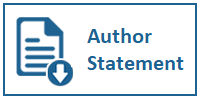Bagaimana Merancang Sistem Manajemen Kinerja
DOI:
https://doi.org/10.31937/manajemen.v10i1.676Abstract
Purpose - Makalah ini mengusulkan model manajemen kinerja berdasarkan teori-teori yang ada.
Design/Methodology/Approach - Konsep paper ini mengeksplorasi sistem manajemen kinerja dengan teori-teori yang telah dikumpulkan dengan menggunakan metode kualitatif.
Findings – Makalah ini mampu menemukan model perancangan sistem manajemen kinerja dengan pendekatan benchmarking dan balanced scorecard
Research Limitations/Implications – Penerapan model perancangan ini masih sedikit perusahaan di Indonesia yang mampu menerapkan
Practical Implications – Memberikan gambaran model sistem manajemen kinerja yang kompleks bagi perusahaan yang membutuhkan dan akan menerapkannya
Originality/Value - Makalah ini relevan bagi praktisi dan akademisi, karena memperjelas pengetahuan yang ada dan menyediakan platform untuk penelitian selanjutnya
Keywords - Performance Management, Performance Measurement, Benchmarking, Balanced Scorecard, KPI
Paper type - Conceptual Paper
Downloads
References
Aguinis, H. (2013). Performance Management (3rd ed.). Boston, United States of America: Prentice Hall.
Aghahowa Enoma, S. A. (2007, March). Developing key performance indicators for airport safety and security. Vol. 25(No. 7).
Amber Qureshi, M. H. (2013, September). Impact of performance management on the organisational performance: An analytical investigation of the business model of McDonalds. International Journal of Academic Research in Economics and Management Sciences, 2(5).
Asropi, S. M. (2007). Membangun Key Performance Indicator Lembaga Pelayanan Publik . Manajemen Pembangunan, 57.
Armstrong, M. (2006). PERFORMANCE MANAGEMENT KEY STRATEGIES AND PRACTICAL GUIDELINES (Third ed.). London, United Kingdom: Kogan Page Limited.
Carlucci, D. (2010). Evaluating and selecting key performance indicators: an ANP-based model. Measuring Business Excellence, 14 NO. 2, 66-76.
Farheen Mughal, F. A. (2014, December). Implementation and Effectiveness of Performance Management System in Alfalah Bank. (S. S. Ali, Ed.) Journal of Public Administration and Governance, 4 No.4.
Fauzia Jabeen, M. B. (2017, March). Exploring the status and effects of balanced scorecard adoption in the non-western context Evidence from the Middle East. Journal of Management Development, 36 No. 8, 1063-1075.
George William Lutwama, J. H. (2013, September). Assessing the implementation of performance management of health care workers in Uganda. BMC Health Services Research, 1472-6963/13/355.
Ingram, H. (1996). Linking teamwork with performance. Team Performance Management: An International Journal, 2 No.4(4), 5-10.
Ismania Hidayati, E. S. (2014, Oktober). ANALISIS PENERAPAN SISTEM MANAJEMEN KINERJA BERBASIS KOMPETENSI (Studi Pada PT Petrokimia Gresik). Jurnal Administrasi Bisnis (JAB), Vol. 15 No. 1.
James W. Smither, M. L. (2009). Performance Management Putting Research into Action. (M. L. James W. Smither, Ed.) San Francisco, USA: Society for Industrial and Organizational Psychology.
Kaplan, R. S. (2010). Conceptual Foundations of the Balanced Scorecard (Vol. 3). Boston, USA: Harvard Business School.
Ljungholm, D. P. (2015, October). THE PRACTICE OF PERFORMANCE MANAGEMENT IN PUBLIC SECTOR ORGANIZATIONS. Geopolitics, History, and International Relations, 7(2), 2015, ISSN 1948-9145, 190–196.
M. Ishaq Bhatti, H. M. (2013, November). The key performance indicators (KPIs) and their impact on overall organizational performance. Quality and Quantity.
Macheng Boipono, T. G. (2014, May). Implementation of Performance Management System (PMS) In Schools : Success Factors. Natural and Social Sciences , 2(5), 189-194.
Maley, J. (2014). Sustainability: the missing element in performance management. Asia-Pacific Journal of Business Administration, 6(3), 190-205.
Milica Jaksic, M. J. (2013, February). PERFORMANCE MANAGEMENT AND EMPLOYEE SATISFACTION. MONTENEGRIN JOURNAL OF ECONOMICS, Vol 09(01), 85-92.
Moeheriono. (2009). Pengukuran Kinerja Berbasis Kompetensi (1 ed., Vol. 1). (R. F. Sikumbang, Ed.) Bogor, Jawa Barat, Indonesia: Ghalia Indonesia.
Pattisahusiwa, S. (2013, Maret). PENGARUH JOB DESCRIPTION DAN JOB SPECIFICATION TERHADAP KINERJA PROSES . Jurnal Akuntabel, 10 No. 1.
Rohaga, T. T. (2014). Jurnal Administrasi Bisnis. (G. Pawitan, Ed.) Jurnal Ilmiah Ilmu Administrasi Bisnis, 10(2), 99-200.
Sarel Lavy, J. A. (2010, April). Establishment of KPIs for facility performance measurement: review of literature. Facilities, 28 No. 9/10, 440-464.
Seyed Akbar Nilipour Tabatabai, M. K. (2014, June). A CONCEPTUAL MODEL FOR PERFORMANCE MANAGEMENT IN ORGANIZATIONS . Arabian Journal of Business and Management Review, 3(No.10(a)).
Uday Bhosale, D. K. (2015, June). PERFORMANCE MANAGEMENT SYSTEM AND ORGANIZATIONAL COMMITMENT. International Journal of Organizational Behaviour & Management Perspectives, 4 No.2, 1728-1731.
United States Office of Personnel Management. (2017). A Handbook for Measuring Employee Performance. Washington, USA: OPM.GOV.
Waal, A. d. (2007). Successful performance management? Apply the strategic performance management development cycle! MEASURING BUSINESS EXCELLENCE, 11 No. 2, 4-11.
Waal, A. d. (2011, March). The impact of performance management on the results of a non-profit organization. International Journal of Productivity and Performance Management, 60 No. 8, 2011, 778-796.
Wahyudi, A. (2012). MEMBANGUN KOMITMEN ORGANISASIONAL UNTUK MENINGKATKAN KINERJA DAN DAYA SAING ORGANISASI.
Watson, G. H. (1996). Strategic Benchmarking. Jakarta, Indonesia: PT. Gramedia Pustaka Utama.
Downloads
Published
How to Cite
Issue
Section
License
Authors retain copyright and grant the journal right of first publication with the work simultaneously licensed under a Creative Commons Attribution-ShareAlike International License (CC-BY-SA 4.0) that allows others to share the work with an acknowledgement of the work's authorship and initial publication in this journal.
Authors are able to enter into separate, additional contractual arrangements for the non-exclusive distribution of the journal's published version of the work (e.g., post it to an institutional repository or publish it in a book), with an acknowledgement of its initial publication in this journal.















